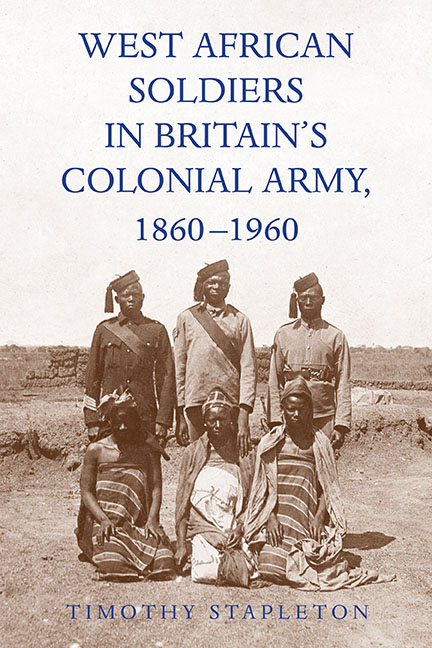Book contents
10 - Murder and Mayhem
Published online by Cambridge University Press: 07 October 2022
Summary
Aside from their involvement in the colonial state's internal security operations or other military campaigns, Britain's West African soldiers committed acts of brutal violence against civilians across the region and at different times during the colonial period. To be clear, West African soldiers engaged in independent acts of violence against West African civilians separate from the “everyday and extraordinary violence” they perpetrated on behalf of the colonial state. On the other hand, and beyond the context of anticolonial rebellion, civilians did not always remain passive victims of such arbitrary military abuse and they periodically attacked soldiers. Examples of seemingly random violence by Britain's West African soldiers against civilians seemed to occur more commonly in the conquest era of the late nineteenth and early twentieth century, faded away during the interwar era and became rampant again during the Second World War. Historians of the British colonial military in East and Central Africa have identified a similar periodization of soldiers’ maltreatment of civilians. In this way, the ebb and flow of such unofficial violence paralleled official flogging and incidents of mutiny within Britain's West African army. Acts of informal everyday violence also took place among Britain's West African soldiers who sometimes inflicted terrible abuse on each other and attacked troops from units originating from other territories. A recent study of the extreme violence perpetrated by Soviet soldiers against civilians during the Second World War offers some useful points for understanding the mistreatment of civilians and sometimes colleagues by Britain's West African colonial troops. For the Soviet case, violence by military personnel against civilians did not represent pointless or mindless acts but “served as a mode of self-expression among soldiers.” As total institutions, armies including those of the Soviet Union and British West Africa establish “their own set of harsh orders, symbols and social hierarchies, providing soldiers with little space outside the institution and nurturing a perception of `us against them.’” In colonial West Africa, these violent acts carried out by soldiers seemed to express their sense of separateness and superiority when compared to civilian communities and occasionally colleagues from other regiments or of lower rank. Absent a large body of written accounts by ordinary soldiers and civilians, these disturbing events illustrate the place of the West African soldier within the region's colonial society and how that changed over time.
- Type
- Chapter
- Information
- West African Soldiers in Britain's Colonial Army, 1860-1960 , pp. 296 - 320Publisher: Boydell & BrewerPrint publication year: 2021

